Ah, The Beach Boys‘—or should I say Brian Wilson‘s—aborted Smile…the stuff on which Rock Town Hill was constructed! Continue reading »
Mystery Date Revealed: South Africa’s The Flames (Prior to Their Washing Ashore With The Beach Boys)
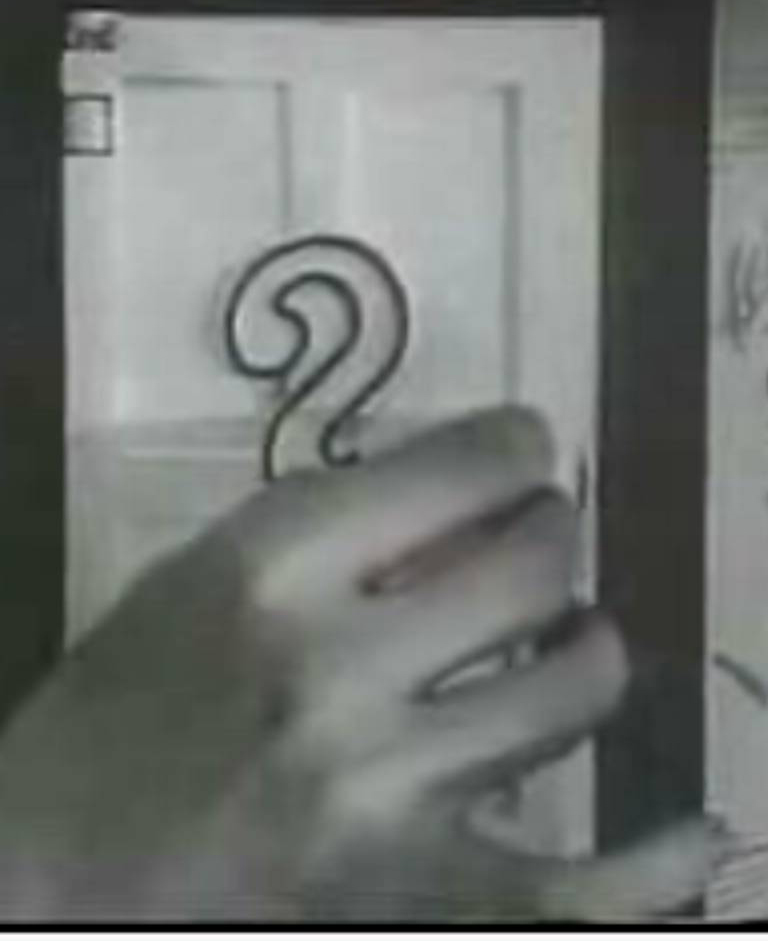

Will Your Mystery Date Be a Dream or a Dud?
Our most recent Mystery Date, a cover of the Small Faces-P.P. Arnold showstopper “(If You Think You’re) Groovy,” was performed by The Flames, the South African group featuring future Beach Boys Blondie Chaplin and Ricky Fataar. Some of you may also know Fataar from his work as Stig O’Hara, the “George Harrison” character in The Rutles. He’s also produced and played on records by the likes of Bonnie Raitt and the Crowded House crew. As a Townsman speculated, the band most likely includes musicians of Indian descent.
Here’s their 1968 version of the Jerry Butler classic, “For Your Precious Love.”
[audio:https://www.rocktownhall.com/blogs/wp-content/uploads/2011/01/the-flames-for-your-precious-love.mp3|titles=The Flames, For Your Precious Love”]Beginning in 1970 the band would record as The Flame, to avoid confusion with James Brown’s band, when they joined the Beach Boys’ Brother label. A piece on their Carl Wilson-produced debut can be found here. Following are Chaplin and Fataar with “Carl & The Passions.” Continue reading »
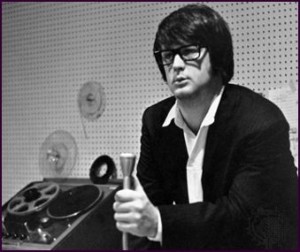

Not made for these times.
“Why don’t you listen to the Beach Boys anymore?” my wife asked me, as we watched an awkward, white-suited, Brian-less lineup of the band play “Good Vibrations” on some “best of” the musical acts on The Ed Sullivan Show that was playing on PBS. The question took me by surprise. In our 22 years together my wife, who’s appreciation of the Beach Boys can be described as “mild” and does not extend beyond that song and the two big songs off Pet Sounds (“Wouldn’t It Be Nice” and “God Only Knows”), had never expressed concern for the well-being of my Beach Boys fandom.
“You don’t listen to the Beach Boys anymore,” she continued, as I sat slightly stunned at this glaring lack of musical self-awareness. “You used to listen to them all the time.”
I guess I did. I remembered the early days of our relationship, when I’d spin Pet Sounds frequently, often gracing (or so I thought) her return home from work with the album that I thought celebrated our love and gave her further insight, in case she was not certain, into just how sensitive I was. Side two headed downhill fast, but playing out this drama through spinning the album seemed kind of brave of me, like I was staring down another man’s failure while building off the best bits of Brian’s triumph of love.
“You don’t like them now,” I looked up, “do you?” As soon as that that question left my tongue I felt a little queasy, like she would take this opportunity to suggest we join a swingers’ scene.
“No.”
I was relieved and went back to contemplating the full implications of her question. Continue reading »
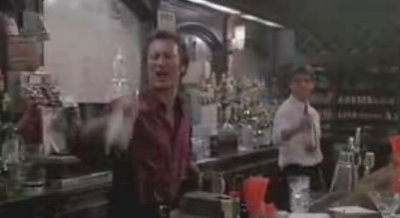

Do the Kokomotion!
This RTH Glossary entry was developed by Townsman alexmagic, who did the heavy lifting, as he often does, in a comment on an earlier thread. As a side benefit of this entry, the term may satisfy the rock world’s need to claim its own version “jump the shark.”
Kokomotion: The inevitable late phase of an artist’s career trajectory, in which they nakedly attempt to recapture the sound that made them initially famous.
The “Magic Man” illustrated this phase by comparing Paul McCartney’s “Silly Love Songs” with The Beach Boys’ “Kokomo”:
Taste and quality issues aside, I think there is a key difference between “Silly Love Songs” and “Kokomo.”
“Silly Love Songs” was written by a guy who was still in the middle of being an active, successful artist. It’s positioned as a statement of “you can bag on my songs all you want, but look at how rich they keep making me!” Some hubris, there.
“Kokomo” was written by a band long past its prime making a last-ditch effort to get any kind of traction. That it somehow worked is a testament to the commanding presence imparted by the authority of a captain’s hat.
McCartney’s Kokomotive moment, then probably would have been the Give My Regards to Broad Street album, where he was redoing actual Beatles songs. I guess a case could be made for the “Tripping The Live Fantastic” tour, where he started to re-embrace his arena rock status, only with his Beatles’ numbers more heavily in play.
I prefer to think of Broad Street being his “Kokomo,” though, because that would mean that Bryan “FX” Brown would have the distinction of being in both Broad Street and Cocktail, where “Kokomo” itself found its place.
Bryan Brown: Rock’s True Zelig?
For the record, can you identify the Kokomotive moments in other artists’ careers?
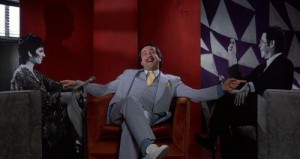

Mom!
Tonight we dig a little deeper. Enjoy!
[audio:https://www.rocktownhall.com/blogs/wp-content/uploads/2010/11/RTH-Saturday-Night-Shut-In-3-2.mp3|titles=RTH Saturday Night Shut-In 3]As last week’s episode of Saturday Night Shut-In should have made clear, I still dig the simple, sugar-charged confections of the rock ‘n roll I cut my teeth on: no questions asked. My musical Reese’s Peanut Butter Cups never get old! As rock ‘n roll and rock fans (myself included) matured it was hard not to look down our noses at some of the similarly sugary pop confectioneries of our late-teen years.
For my generation that would have been a band like the Saturday Night Fever–era Bee Gees. A little later there were bands from my youth that fell between the age of childhood innocence and my college years, the musical versions of Twix (introduced in the US in 1979), in my case, like middle-school discovery from a few years earlier, ELO. In my college years, as I yearned for music a little more sophisticated or passionate or political—or anything that might make me seem more interesting to women and rock sages—I questioned the value of the Twix bar. Was it too much a newfangled kid’s candy for me to be seen eating? Reese’s was old school, classic, even “cute,” in the eyes of a nuturing young woman. Twix, in the early ’80s, like the Saturday Night Fever soundtrack and ELO, didn’t make a woman my age get all soft and gooey in my presence, at least not the women I wanted to get soft and gooey. And it goes without saying these newfangled pop bands held no weight with the older rock sages I was simultaneously looking to impress.
Then a funny thing happened, at least in my world: rock sages determined that Bee Gees albums from the ’60s were actually pretty cool! Next it was discovered that, prior to ELO, Jeff Lynne joined an obscure (to American rock nerds) ’60s band called The Move. They were definitely cool, with reports of them smashing TVs and cars on stage yet still not getting remotely popular in the States, unlike their instrument-smashing contemporaries, The Who and Jimi Hendrix.
By this period I was deep into buying somewhat obscure albums by ’60s artists, blowing a dollar here, fifty cents there on possibly overlooked gems by the likes of The Association and, yes, The Bee Gees. Then I got wind that The Beach Boys carried on for years without an even remotely sane Brian Wilson at the helm. I thought, A lot of pain and suffering had to have gone into those albums! They must have been, well, not better but more interesting than my childhood favorites, like “I Get Around.” The rock sages were all about pain and suffering, and I was beginning to learn that a number of attractive women dug those qualities too. Sure enough, although not chock full ‘o hit singles, late-’60s Beach Boys albums like 20/20 do deliver songs with unexpected depth and charmingly rough edges. We dip into one of these songs in this week’s episode.
Toward the end of this week’s episode, I ask Townspeople to help me clear up a shocking discovery on my presssing of Charlie‘s No Second Chance. I’ve either discovered the most unexpected growth in the shortest period of time in music (ie, in the time between sides 1 and 2) or I’ve stumbled across something akin to finding an original draft of the Declaration of Independence behind an old picture frame left behind in the attic by my house’s previous owner!
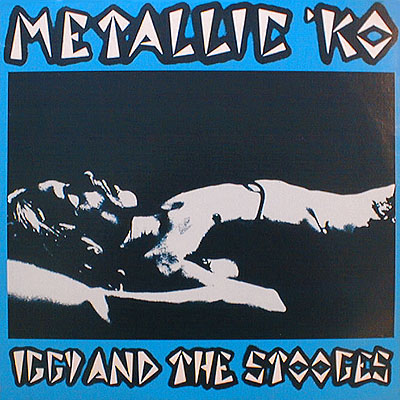

This thread won’t apply to everybody. For younger record nerds who have come of age in an era when downloads of just about any obscure album can be found for free on the web if you search long enough, there’s little risk in accumulating all the mp3s your heart desires. The anxieties that older rock nerds have experienced may not ring true. It must be nice.
Some of you have already walked down the endless path of the hardcore record collector. There’s no stopping you now, and if that’s the case, more power to you! A part of me wishes I hadn’t been scared off this path, but I was, by two once hard-to-find purchases I made when I was 18: a bootleg of the Sex Pistols‘ last show at San Francisco’s Winterland and Iggy Pop and The Stooges‘ semi-bootleg document of that band’s last show, Metallic K.O. As I said, today you could probably download these albums in the comfort of your home in less than 20 minutes. In 1981, a teenage boy without much cash to spare had to make a great investment of time and money to locate these albums and bring them home, with no opportunity to sample selected tracks for free on some blog. What if this bootleg I’m tempted to spend $20 on sucks? What if I hear more of the dude who illegally taped the show hooting and hollering for his favorite songs than I do the band?
Worse yet: What if the bootleg was a dreaded, DOA board mix, with little more than vocals and kick drum?
Continue reading »
I know some of you are touched by the simple, open-wound charms of The Beach Boys’ Love You album. Isn’t part of that album’s appeal the sympathetic vibe you get from a band hanging onto its gifts by a thread?
That’s at the root of my soft spot for The Byrds‘ “Chestnut Mare.” I’m a hard ass about The Byrds’ prime-era work, as some of you know, but I find “Chestnut Mare” most sympathetic. You can tell Roger McGuinn is still trying to catch that elusive sound he’d been chasing during the ups and downs of The Byrds. He’s the last of the original Byrds standing, but he’s not ready to think outside the band structure. Roger’s got a business suit on – just in case – and it’s not clear that everyone in this version of The Byrds makes sense (conga player???), but it’s not quite the season for the band to die.
Musically, I think there’s something to be said for the lack of cohesion and confidence in this performance. I wish the early Byrds could have shown more rough edges and vulnerability. I wish The Byrds had trafficked in more Loser Rock. OK, maybe not, but at least this weird, waning performance allows me to feel something wistful.
What’s your most sympathetic last-ditch effort by a band that’s clearly past its prime?

